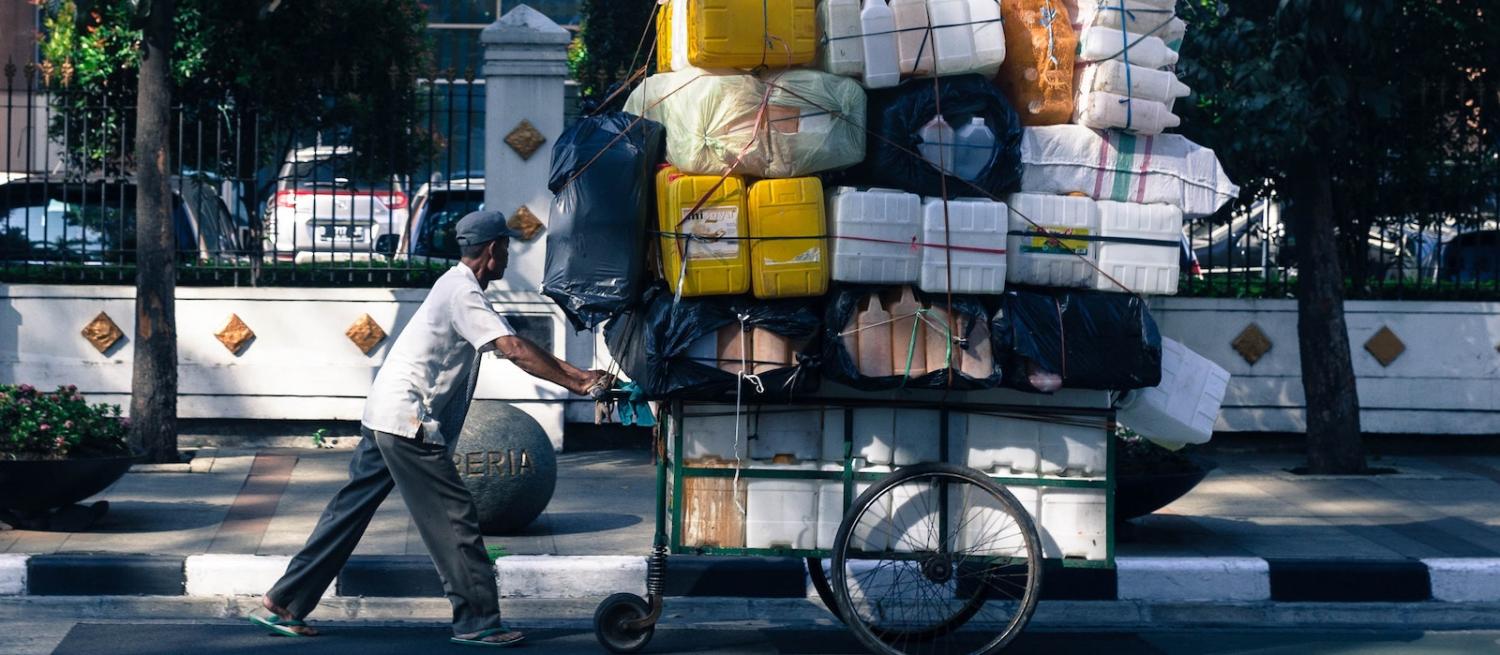After Jim Yong Kim resigned last month, President Donald Trump indicated he intends to nominate senior US Treasury official David Malpass to lead the World Bank. Under an unofficial agreement, the World Bank President always comes from the United States. Although the multilateral development banks (MDBs) have many members, in practice, MDBs are long known to be a vehicle for supporting the political and economic agenda of economically powerful countries.
For decades, a few rich countries have dominated the shareholding and the voting rights of MDBs. For instance, the US has a dominant share in the World Bank, with 15.98% of voting power and capital subscribe valued $38.45 billion. Japan and US dominate the Asian Development Bank (ADB), with voting power as much as 15.6% each. Likewise, Saudi Arabia has a chief role in the Islamic Development Bank (IsDB) with 23.50% capital subscription valued $11.89 billion, while China, as the major shareholder, has 26.5% of the voting power in the Asia Infrastructure Investment Bank (AIIB) with subscribed capital valued at $29.78 billion.
Indonesia has positioned itself to no longer be merely an aid recipient, but also an international donor.
In recent years, calls have grown for reform of the World Bank and International Monetary Fund governance structures, to shift focus in the voting structure from the needs of the US and European countries to the developing world. The leadership of particular powerful countries in these MDBs is clearly a part of an attempt to promote their own economic and political interests, regardless of the fact that the main borrowers from the MDBs are developing countries. Those with big voting rights weigh in with major policy decisions.
Yet the reform call should not only be in addressing the World Bank and IMF but also to improve governance at the other MDBs. Clarifying mandates and addressing the constraints are critical to allow these banks to be more effective. Research by the Brookings Institution in 2018 found that when borrowing countries have adequate voting rights, the result will be positive for the banks themselves. There is less reliance on a compliance rules-based culture, less conservative financial policies, and more flexibility in allocation procedures. Although the pressure to reform has been putting stress on MDBs, governance systems at the MDBs have been slow to change.
Part of this change should be to recognise the influence of emerging economies. Indonesia, for example, has also been a major shareholder and mostly a top ten of shareholder in these MDBs. Among countries in Asia, Indonesia is a significant shareholder alongside Japan, South Korea, and India. For example, in ADB, Indonesia is the sixth largest shareholder out of 67 member countries, with paid-in capital valued $402 million. Indonesian shares represent 4.6% of the total ADB voting power and it is the biggest shareholder in its constituency.
In IsDB Group, Indonesia has $207 million of paid-in capital, $1.1 billion of subscribed capital, and is the 12th biggest shareholder, with 2.3% of the voting rights. In IBRD (World Bank Group), Indonesia has contributed $167 million, with 0.98% voting rights and is again the largest shareholder in its constituency. To the young and new AIIB, Indonesia is the eighth largest shareholder, with $537 million of paid-in capital, $3.36 billion of subscribed capital, and a 3.1% voting right.
Economically, Indonesia is one of the powerhouses in Asia and will boast the world’s fourth most powerful economy by 2050, according to a report by PwC. Indonesian GDP was an estimated more than $1 trillion in 2018, judged by the IMF as the 16th largest GDP in the world. Indonesia has positioned itself to no longer be merely an aid recipient, but also an international donor.
Currently, the Indonesian government is setting up a special institution to specifically channel Indonesia’s assistance to less developed countries. On the political side, Indonesia has successfully won its bid for a non-permanent seat on the United Nations Security Council 2019–2020.
Yet unfortunately, Indonesia has not gained a significant role in MDBs despite being a major shareholder. Indonesia is also under-represented in terms of only having few Indonesians working at those institutions. Developing stronger cooperation and showing more leadership in MDBs should be one of the priorities in the multilateral cooperation for Indonesia in the future. But the obstacles appear to be difficult, given the way MDBs have been dominated by established players for decades, and the powerful countries prefer the status quo.
There are strategies for Indonesia to improve its role.
In the short term, Indonesia should put more representatives in the MDBs to voice Indonesia’s agenda. Former finance minister Sri Mulyani Indrawati is well known as the Managing Director and Chief Operating Officer of the World Bank Group, but the country is stacked with talent that could be dedicated to MDBs to ensure that the priorities and agenda of these institutions represent not only an Indonesian agenda but that of other developing countries.
In the medium term, Indonesia should try to negotiate a capital increase in the key MDBs to gain more voting rights. Obtaining a capital increase is not easy, due to existing rules that require any increase to have the approval of other members.
In a more ambitious sense, Indonesia might need to set up its own multilateral development bank as a long-term strategy. Indonesia has accomplished much in the socio-economic and political domains, so the idea is worth considering, even if not an easy task. But when looking at the history of how MDBs have been established, a strong political and economic commitment from the founder attracts other countries. China, for example, began the AIIB with a commitment of being the biggest capital contributor, and an initial $50 million start-up contribution, hired the best available talent, and actively approached other nations to join the initiative.
Indonesia needs a strong, bold move and commitment if it intends to win greater influence in the decisions of MDBs.

